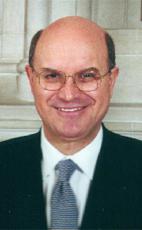Mr. Speaker, in the interview I gave to a Canadian Press reporter two days ago, I did not say that I was sick of Quebecers. What I said was that I was sick and tired of Quebecers like the Bloc Quebecois members sowing the seeds of dissension among Canadians during question period here in the House of Commons.
Mr. Speaker, in light of the cuts to our defence budget, we can either choose to keep all three colleges, even though we do not need this many institutions to train officers, or we can choose to centralize operations in one institution and Kingston's Royal Military College has the best facilities for this purpose.
I have been watching with some great alarm the remarks of people in Quebec, prodded by the members on the other side on this particular issue. They are not doing the people of Quebec and Canadians a great service by inflaming what is becoming an argument that is emotional and is not based in reality.
French is now taught at Kingston. Forty per cent of the students at Saint-Jean are in engineering. They have to finish their education in English and French at Kingston because it is too expensive to have two or three courses in engineering.
We already have in reality a bilingual college at Kingston. The facilities are much better. If the facilities had been better at CMR de Saint-Jean, we would have centralized everything there.

